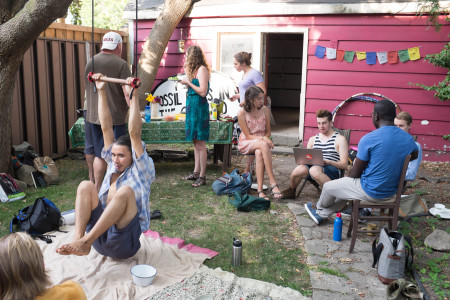Since incorporating as a non-profit, Toronto350.org has been going through some serious growing pains, particularly when it comes to governance and decision-making structures. The group seeks to be profoundly democratic, with open membership and a philosophy where people choose their own level of involvement. At the same time, we have been experiencing difficulties deciding which individuals or sub-groups should make particular decisions, and through what method.
In order to help play a constructive role in the group’s evolution, I have been reading about non-profit and NGO governance, both from an official and legal perspective and from a more theoretical one. Jo Freeman’s 1970 article “The Tyranny of Structurelessness” makes some interesting points about groups that are consciously or unconsciously becoming more formalized:
For everyone to have the opportunity to be involved in a given group and to participate in its activities the structure must be explicit, not implicit. The rules of decision-making must be open and available to everyone, and this can happen only if they are formalized. This is not to say that formalization of a structure of a group will destroy the informal structure. It usually doesn’t. But it does hinder the informal structure from having predominant control and make available some means of attacking it if the people involved are not at least responsible to the needs of the group at large. “Structurelessness” is organizationally impossible. We cannot decide whether to have a structured or structureless group, only whether or not to have a formally structured one. Therefore the word will not be used any longer except to refer to the idea it represents. Unstructured will refer to those groups which have not been deliberately structured in a particular manner. Structured will refer to those which have. A Structured group always has formal structure, and may also have an informal, or covert, structure. It is this informal structure, particularly in Unstructured groups, which forms the basis for elites.
Toronto350.org has had some sort of formal structure for a long time. Initially established as a University of Toronto club, there has long been an elected executive and a constitution which, among other things, defines their roles. Still, one of the main challenges facing us now is professionalization and working out a more effective division of labour. In order to achieve those things without abandoning democratic ideals, we need to take ideas like Freeman’s seriously.

